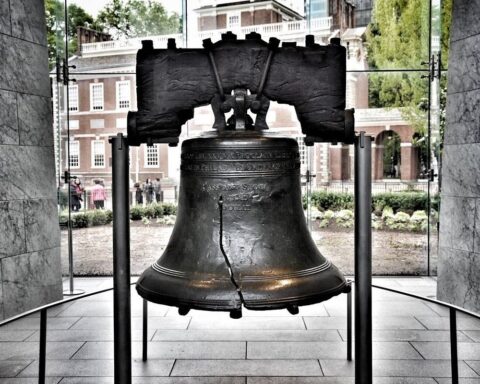Editor’s note: The following account and sermon is extracted from The Sky Looked Down, the World War II memoir of Sgt. Frank Samethini, Royal Netherlands Indies Army. Captured by the Japanese in 1942, Samethini toiled as a slave laborer on the Thai-Burma Death Railway before being shipped to Japan in mid 1944. At Yokkaichi camp he volunteered to serve as chaplain to his fellow prisoners.
December 1944 has just started when Handlebar [POW nickname for the Yokkaichi camp commander – ed.] has a small tree brought in for Christmas, undoubtedly acting under instructions, for he is just not the type for doing that on his own.
Yesterday we heard of yet another sinking of ships carrying prisoners of war to Japan. The man with the pipe comes along.
“Frank, what are you going to say to them now on Sunday?”
“Let me answer your question with another, Hendrik. What would you say?” (Oh, how well I know this man).
“I don’t believe in worship.”
“Why not?”
“I’ve come to the conclusion that our life is governed by the laws of nature, the law of averages, fortune, fate, whatever. God is merely another name for nature, a symbol for that part of the world’s population that needs a God to live by, to worship, to pray to or to blame for their shortcomings. A symbol of tradition in mystical thinking, no more. I say that all one needs in life is a certain amount of common sense and luck. Hasn’t Nietzsche explained it clearly in his doctrine of the eternal recurrence of the same events? Why do you think this war was started? Because it is needed to stabilise the number of people inhabiting this planet, so there will not be too many! Lots of people are killed by war, epidemic or earthquake or other disaster. One of the great laws of nature. Balancing the multitudes through catastrophes is just as important as the law of reproduction.”
“You’ve got it all worked out, haven’t you?”
“Yes. If by any chance a man, woman or child survives an act of human violence or a natural calamity, it can only be attributed to good fortune or good reckoning, horse sense, if you like. The only scientifically just explanation, and therefore the only acceptable.”
“Are you quite finished?”
“Yes, and I’d rather keep my mouth shut than tell a pack of lies!”
“Since when have you been harbouring these convictions?”
“I’ve thought it all over and come to believe that only good planning, plus a certain amount of luck, or useful coincidence, if you like, determines one’s destiny. Nietzsche was no fool, you know.”
“And where has the great Nietzsche come to with his brilliant theory? Where did he land with his bold conception of the superman who by sheer willpower may achieve the supremacy of the world? He died an incurable lunatic. And what is happening to his own people with their doctrine of German supremacy? What, for that matter, has remained of the civilisations of the past, proclaiming themselves as the Herrenvolk, the super race? Where are the Persian, Mongolian, Egyptian and Roman hordes of world conquerors? They all had only faith in their armour, in force, in calculations of the human mind. Where are their empires now?”
I am glad that I have been asked to perform our church services, as short and perhaps inadequate as they may be, for this man would have been a menace to the tranquility of our minds. A man needs to remain sane and balanced, for these are the days of want, of anguish, when a man needs something to hang on to, to believe in something whole and good.
Have we come to believe that? As if in answer to my unspoken thoughts I am called on with the request to take up the question of why fellow prisoners, who had survived Thailand and Burma, had to die at the hands of our Allies in the recent torpedo attacks. I promise to speak on that subject this coming Sunday. There is a look of amusement and pity in Hendrik’s eyes, surveying me over his dubious-smelling pipe, before turning about and leaving me alone with my problem.
Sunday arrives. All around me are their eyes, more than I ever saw on any other Sunday. Probably the news got around that the Swearing Minister is going to be put up to the wall.
“The question has arisen as to why our men had to die at the hands of our Allies while having been allowed to stay alive in Thailand and Burma. We can’t explain this with a cut and dried answer, but at least we can offer a thought, a deliberation, though chances are that, should a similar mishap be about to happen to ourselves, we would probably be screaming, ‘Why us, why us?’ Why had these men to perish by submarine action? By the same token, we could ask why children, infants, innocent people have to die in a war, or by accident or by the hands of a criminal. Biologically and technically their deaths are explainable, for one thing is the result of another. But that is not our question; we’re not investigating the technical reasons. We wish to know why God allowed them to expire. Our question is related to religion, faith, so we should stay within the realm of that. Well now, could any one of us supply the answer? Of course not, because if we could explain God we would not need Him, would we? We all would be little gods ourselves, and it hardly needs explanation that we are not! But perhaps we could find something to hold on to if we stick to the Bible.”
Here I have to stop a moment to look at my notes, while softly praying to myself, “God, help me!”
“The Bible says that our lives are in God’s hands, but it is also written that this doesn’t mean that we are free to disregard actions which may cause us harm or even death. We cannot ignore the common laws of nature, those of gravity and velocity, to mention a couple. If we jump out of a window, we break our neck. If we drive too fast, we may get killed. As someone has said, we may expect miracles from God, but no nonsense. It is all very simple. If we commit one bad thing, another bad thing may result from that. If we make war, a torpedo may send our comrades to their death, whether they got through Thailand or not. If this world is at war, if it is made compulsory to kill a fellow man, anything goes and terrible things will happen to friend and foe. But why not only to the aggressor? Why should people who did not go to war suffer and perish too? Well, if a rifle is fired, the bullet will go its way. If a bomb is released, it will fall on its target. So if a torpedo is fired, it will propel itself to the ship. Each time these lifeless instruments of war follow a law of nature: pressure, velocity, gravity, explosion. They are not the bad things. They are dead things simply complying the laws of physics.
“The bad one is the mind which pulls the trigger, pushes the button. Now then, if our wish would be granted, if disaster should come to the aggressor only, then that would mean that a supernatural force would have to stop these missiles from going their way. The great laws of nature would have to be defied! Defending ourselves against an enemy would not be necessary. The bad mind, filled with greed, hatred, jealousy or whatever makes it bad, could not cause us harm, could not achieve its malicious end. Then there would be no point in being bad, and the supreme condition God has imposed upon Himself – that man should be free to choose between good and evil – would be without meaning! Oh, wouldn’t it be a jolly good old world, no more baddies, a real paradise! Yes, it would be, but not because of man himself, but because God made it so – which is precisely not what God wants. We know that from the Bible. Man himself should make this world better. Man himself should not wish to be bad, should not want that which is not his – which is the answer to our problems. How long will this planet have to spin around its sun before “Thou shalt not covet!” has become an international way of life, thus obliterating war?
“Perhaps Bonaparte had found the practical answer when he said that one should make his defenses so frightfully strong that his neighbor will have second thoughts before planning to attack, for fear of causing irreparable harm to himself. Let us not say so often, ‘Why this, why that,” but let us be still and thankful for our good fortune at being saved so far, with possibly a chance to come home when it’s all over. As long as the world will not follow the Divine command to love our neighbors as ourselves, it will not understand God.”
Hendrik’s mouth clamps over his pipe, his eyes regarding me with a look of mild surprise. Then, taking out his pipe, he says, “Not bad for a beginner.”
“Is that a compliment?”
“Maybe, but what would you say to a man who, home after the war, finds his wife killed, his daughter raped by the enemy? What would you say to a mother witnessing her child being put to death by the enemy? Would you say that God loves them? That Jesus loves them? Perhaps the word ‘love’ in the Bible has been misinterpreted? Should it be taken as ‘watching you?’ ”
“Frankly, I don’t know, but perhaps we shouldn’t used the human concept of ‘love’ as the measure for the Divine, universal meaning of it. Remember that faith in God is a gift, given by grace, not attainable through reasoning. I think that there’s a lot in what Cowper said: ‘Knowledge is proud that he has learned so much. Wisdom is humble that he knows no more!’ Good night to you, sir.”
I am tired of this man’s endless arguing.










4.5
Fantastic.
5